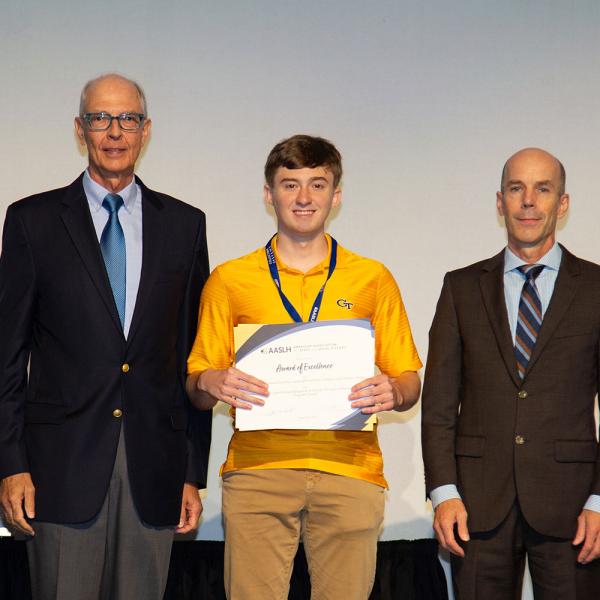Georgia Tech Students Help Illuminate Coffee County’s History
Georgia Tech Students Help Illuminate Coffee County’s History
Georgia Tech students played a pivotal role in the award-winning Coffee County Memory Project, an oral history initiative that preserves the stories of school desegregation in rural Georgia.
Launched in 2016, the project was supported by the Institute’s Sustainable Communities Summer Internship Program, run by the Center for Serve-Learn-Sustain (now the Center for Sustainable Communities Research and Education), in which students work full time with community partners across Atlanta and Georgia.
Beginning in 2017, trusted advisers contributed to the success of this work, including Vernon E. Jordan Jr., Christopher Lawton, Ann McCleary and G. Wayne Clough. Clough, who served as Georgia Tech’s president from 1994 to 2008, long advocated for public service, community-engaged research, and interdisciplinary teaching and learning.
In 2019, Georgia Tech students and participating interns Brice Minix and Nabil Patel combed through decades of local newspapers, digitized school board records, and conducted interviews with community members who lived in Coffee County during desegregation. In 2020, Kara Vaughan Adams and Bennett Bush transcribed countless interviews. Samina Patel’s contributions in 2020 and 2021 included graphic and web design.
All their work laid the foundation for two virtual museum exhibits: emergingVOICES of Coffee County and Overcoming Segregation: A Journey Through Coffee County’s Forgotten Stories. The latter received the 2023 Award of Excellence from the American Association of State and Local History. Further recognition came this year when the project earned the 2025 Georgia Association of Museums’ Special Project Award for the PLAYBACK & FASTFORWARD seminar series.
T. Cat Ford, Project Director said, “The Serve-Learn-Sustain interns we partnered with from Georgia Tech were all graduates of Coffee High School. Their efforts turbo-charged our work—not only because they worked tirelessly but also because, as they preserved their own history, they offered valuable insights into their lived experience of this legacy.
Click here to learn more about SCoRE’s Sustainable Communities Internship Program.
